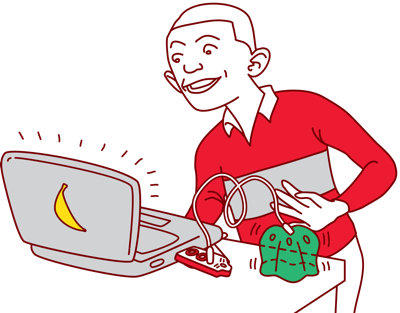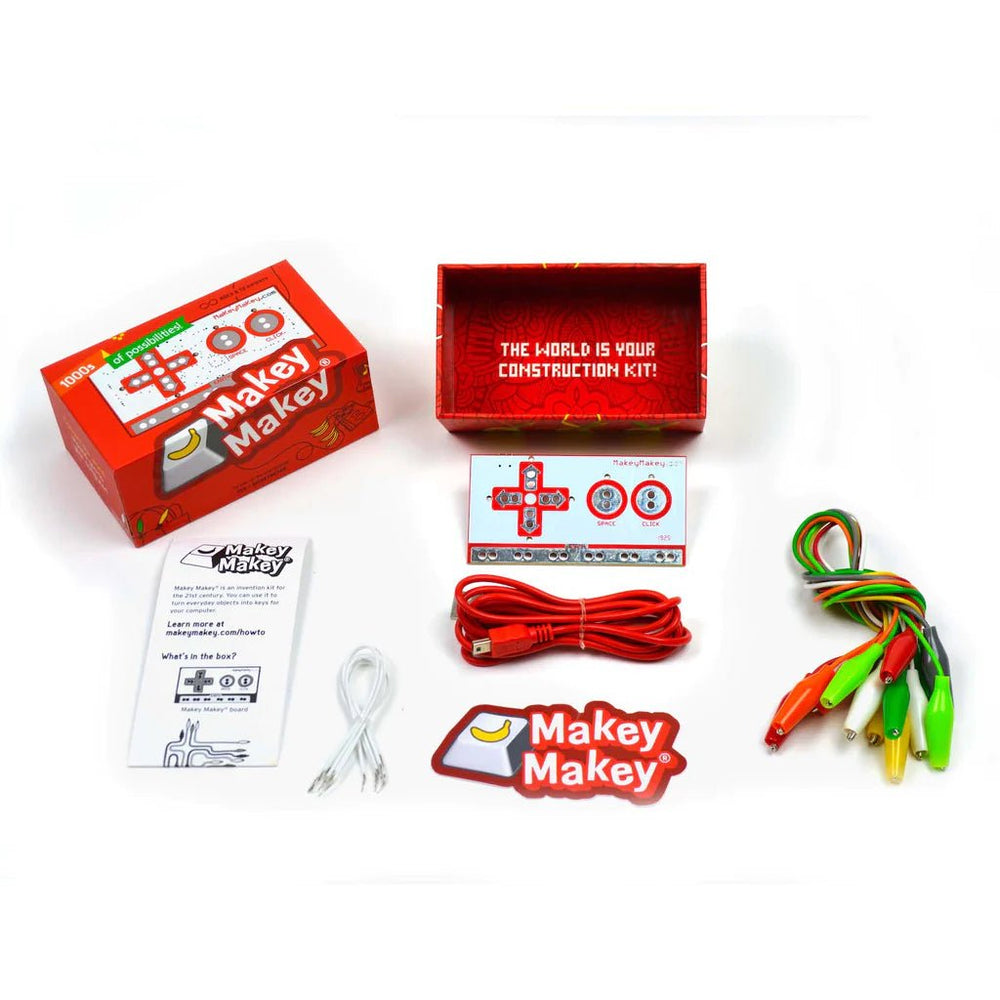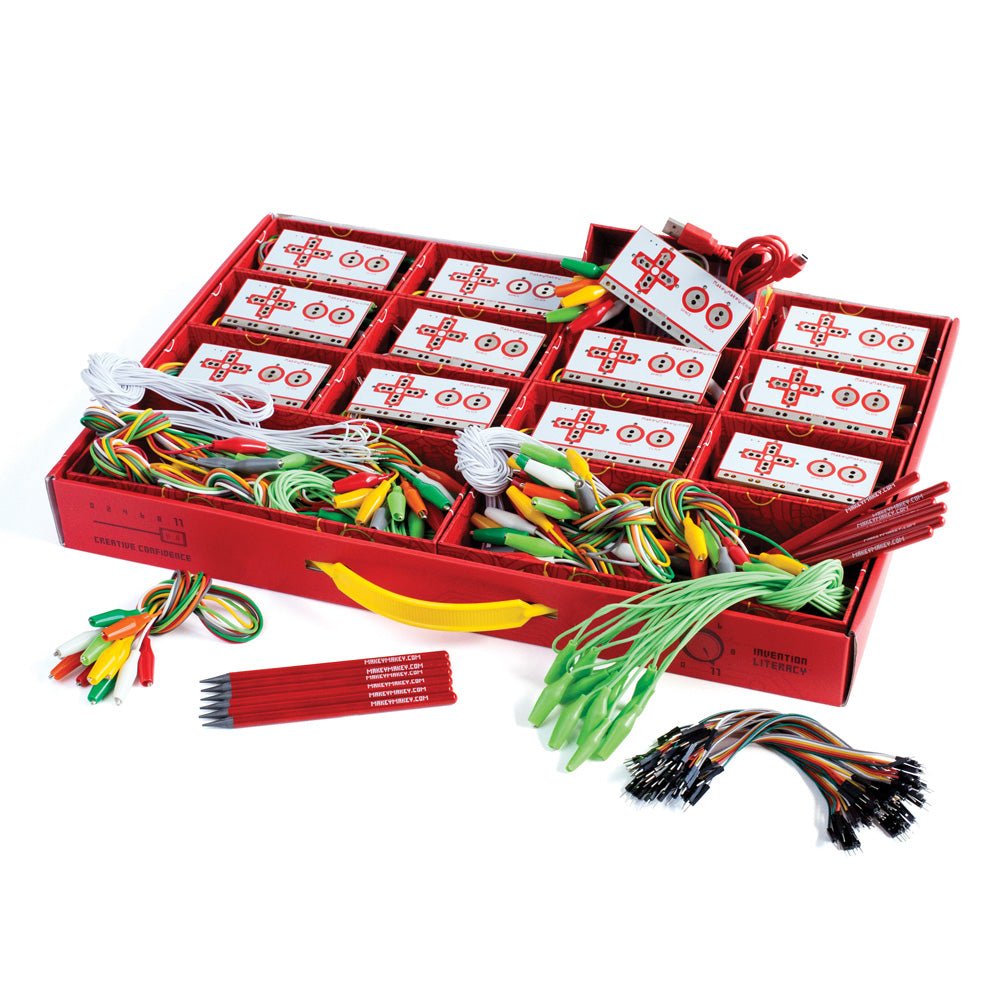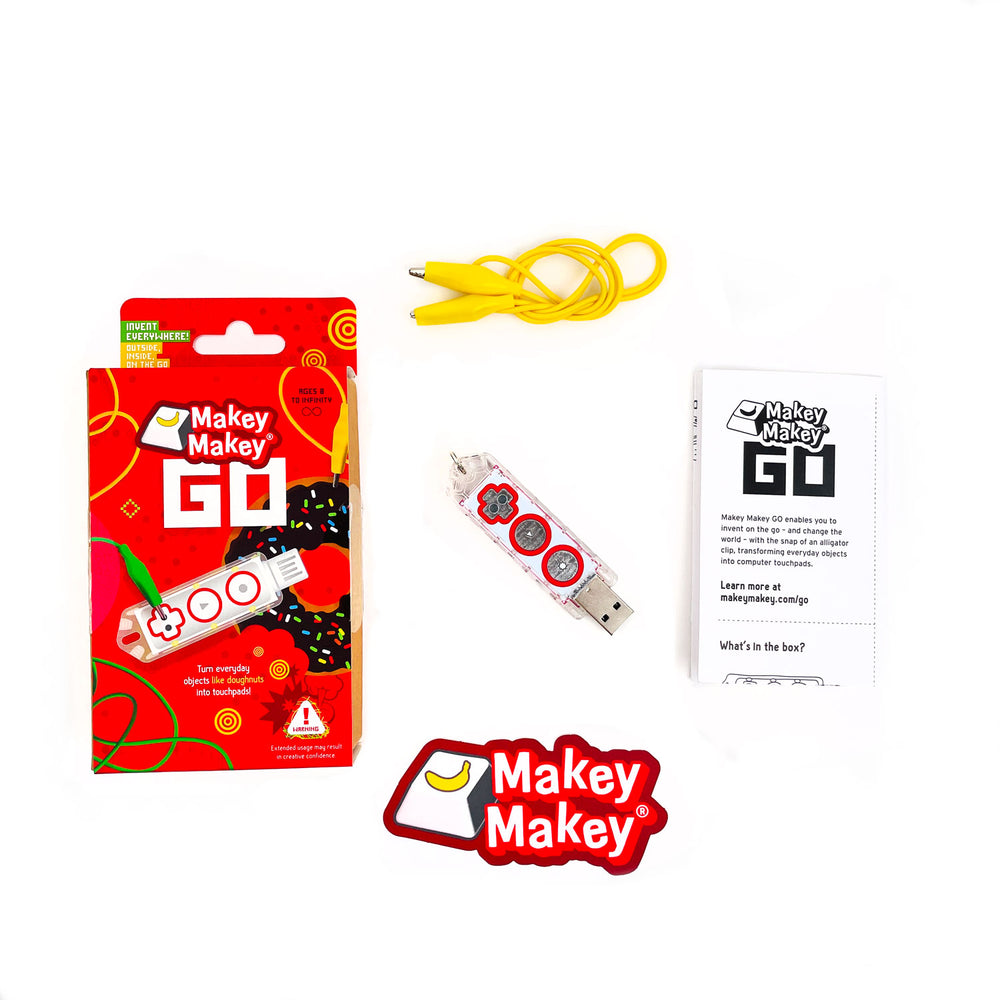Trash to Tech: Innovating with Makey Makey & Recycled Materials

What do cereal boxes, bottle caps, and aluminum foil have in common? Aside from being regulars in your recycling bin, they’re also waiting to become the stars of your next invention. That’s right—at Makey Makey, we believe innovation doesn’t require fancy tools or shiny new supplies. Sometimes, all you need is a little imagination and a pile of yesterday’s packaging.
Whether you’re a classroom filled with curious students or a family looking for screen-free fun that still feels plugged in, this post is your go-to guide for clearing out the bin and turning trash into tech. We’re mixing creativity with sustainability, learning with laughter, and proving that even a bottle cap has big potential.
Why Sustainability and STEM Go Hand-in-Hand
There’s something magical about taking what you already have and transforming it into something new. When we teach kids to reuse, repurpose, and rethink everyday materials, we’re not just cutting down on waste—we’re teaching them to be innovators. Sustainability and STEM are a natural pairing. Together, they challenge us to think critically, design creatively, and care deeply about the world around us.
By incorporating recycled materials into your STEM activities, you help young makers learn problem-solving. You encourage them to ask, “What if?”—What if this paper towel roll was a controller? What if this cereal box became a keyboard? That kind of thinking is what drives real-world change. And bonus: you don’t need to spend a dime on supplies.
The Treasure Hiding in Your Recycling Bin
The best part about upcycled innovation? The materials are already in your home or classroom. Start with a bin and toss in clean, safe items like cardboard from delivery boxes, aluminum foil from your last takeout, bottle caps, egg cartons, plastic lids, and paper towel rolls. Even twist ties and bread bag clips can come in handy for quick connections or makeshift switches.
It helps to designate a “Maker Bin” where you stash these treasures. Let kids take part in sorting and collecting—it’s a great way to build awareness around waste while getting them excited about future projects. You’d be amazed at how quickly a pile of recyclables turns into a pile of possibilities.

How to Prep for Makey Makey Magic
Before you start turning a cereal box into a musical instrument, there’s one thing to know: not all materials are created equal. Some conduct electricity, while others don’t. Conductive materials—like foil, some metals, and even a few fruits—can send signals through Makey Makey. Non-conductive materials, like cardboard or plastic, are still useful for structure, but they won’t complete a circuit on their own.
Want to find out which is which? Do a quick conductivity test using your Makey Makey! Hook up an alligator clip to the material, hold an alligator clip connected to EARTH, and see if your computer reacts. It’s a simple way to turn science exploration into a hands-on experiment—and it’s always a hit with curious kids.
DIY Projects That Turn Trash Into Tech
Once your maker bin is stocked, it’s time to bring your recycled treasures to life. Whether you're a teacher guiding a classroom of inventors or a parent looking for a weekend project, these hands-on activities turn everyday items into interactive masterpieces—no fancy parts required.
Here are some of our favorite projects that show just how far a little creativity (and a few bottle caps) can go:
Makey Makey Marble Maze
With just cardboard, foil, and a marble, you can build an interactive maze that buzzes when you hit the walls. It’s the perfect combo of game design and problem-solving—and it gives that cereal box a whole new lease on life.
Wire Maze Challenge
Got a wire coat hanger, some cardboard, and a steady hand? This DIY wire maze is not only a blast to play, but it’s also a great way to introduce the concept of conductive materials. Bonus points for reusing scrap wire that would otherwise get tossed!
Whack-a-Mole with a Twist
What do an Amazon box and Pringles cans have in common? They make an epic Whack-a-Mole game! This project combines movement, sound, and storytelling—all while reusing some of the most common items in your recycling bin. No Pringles? Try yogurt cups, applesauce containers, or even paper cups.
Recycled Controller Showdown
Challenge your students or family to a "Controller Creation Contest" using nothing but recycled materials. Cardboard, bottle caps, rubber bands, even twist ties are fair game. Use this MoonShot Kidz example as a starting point, then let imaginations run wild. Can your team make a controller that’s both functional and funky?
Give It a Story
Turning trash into tech is cool—but giving your invention a purpose? That’s next-level creativity. Encourage kids or students to name their creations and share their “why.” Maybe your cereal box controller is a “Climate Action Command Center,” or your foil piano is a “Harmony for the Planet” instrument.
This is also a great opportunity for writing, presenting, or reflecting. Have students write short blurbs about how their invention helps the environment, or film a short “commercial” for their creation. Turn your classroom or living room into a mini Eco-Innovators Expo and let everyone show off their work.

Tips for Teachers and Families
Want to make this an ongoing thing? Start a monthly Sustainability Challenge or Eco Maker Day where everyone is encouraged to invent using only recycled materials. Create a display wall (physical or digital) for all the projects. Have students reflect in journals or create presentation boards explaining their design process.
You can also time this type of activity with Earth Day, STEM Week, or as part of a sustainability or design unit. The possibilities are endless—and best of all, it’s cost-effective, eco-conscious, and totally fun.
Small Changes, Big Impact
At the heart of every great invention is a simple question: “What if?” What if we didn’t throw it away? What if we turned it into something new? What if we could build, play, and learn—all while helping the planet?
With Makey Makey, the answer is always yes. Yes to reusing. Yes to exploring. Yes to empowering the next generation of eco-friendly inventors.
So go ahead—clear out that bin, grab your alligator clips, and turn yesterday’s trash into today’s tech masterpiece.
Share Your Eco Creations!
We want to see what you’re making! Share your recycled Makey Makey masterpieces on social media and tag us @makeymakey. You just might inspire the next wave of creative changemakers.












